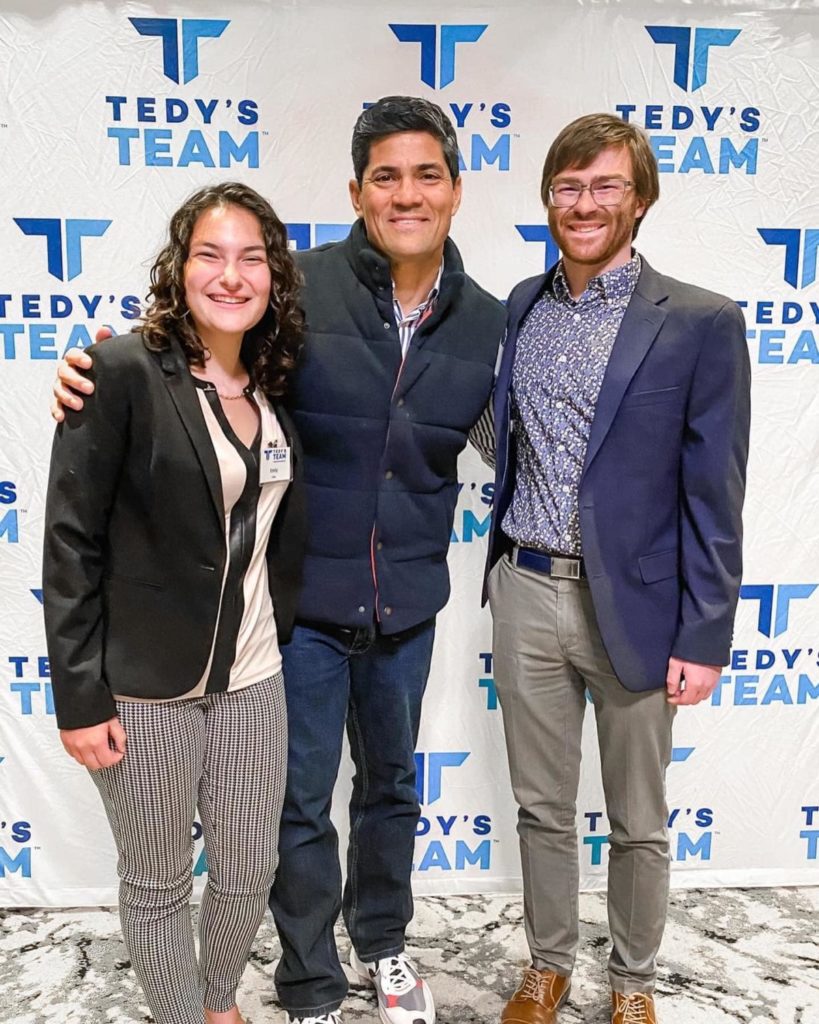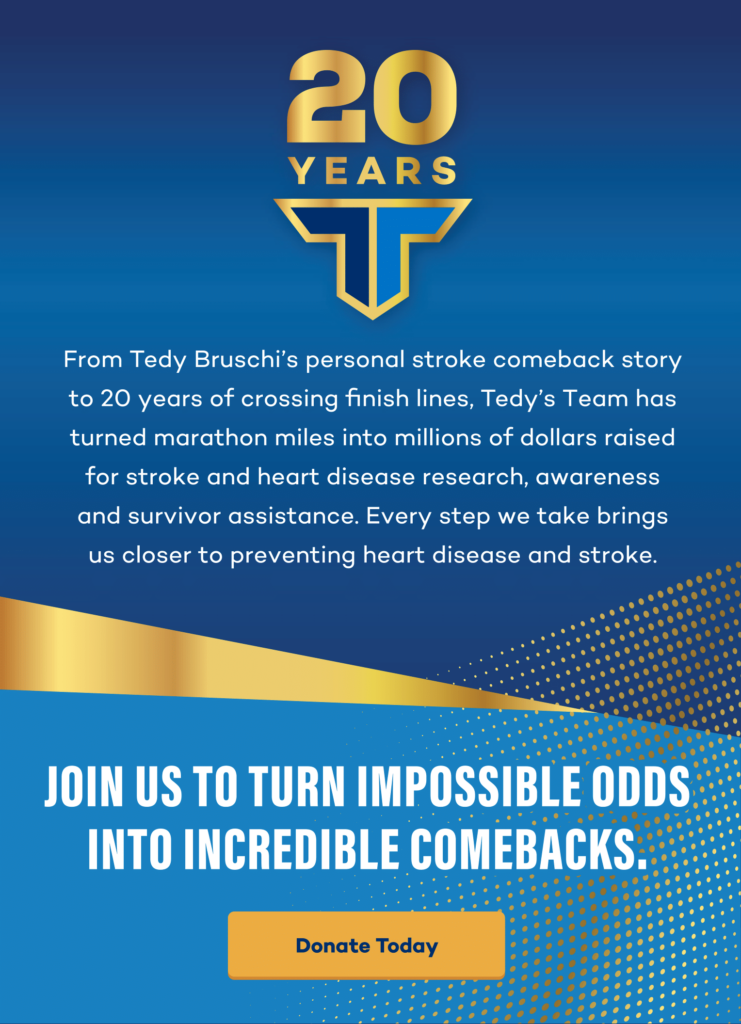Stroke Survivor and her brother to run Boston Marathon together for Tedy’s Team
Boston Marathon

In 2018, when my younger sister, Emily, was just 18 years old and a freshman in college, she suffered a stroke. She was sitting in her chemistry lecture at the University of New Hampshire and started to feel a little bit off. She excused herself from class to take a moment to collect herself when her vision started to fade. She stumbled down the hallway, as at this point, she was starting to have difficulties with her balance. As she continued down the stairs, what vision she had left continued to fade. At this point, Emily was displaying several of the classic warning signs of a stroke: balance difficulties, eyesight changes, arm weakness, and speech difficulties. She was lucky enough to blindly crawl into a room that was full of people, one of whom called 9-1-1.
Despite the signs of stroke being clear, it took weeks of testing for Emily to be diagnosed with having had a stroke. Thankfully, Emily is now almost fully recovered, though she still occasionally has trouble finding words and has some pronunciation difficulties. This is a common side effect of strokes called “aphasia,” one that about one third of stroke survivors experience.
Emily had no factors that put her at higher risk of stroke and is a quintessential example that a person of any age and physical fitness level can experience a stroke.
When Emily suffered her stroke, I was in my first year of teaching science at Mt. Ararat High School and gearing up to start training for my second ever marathon. Running was a big part of Emily’s recovery, and she asked me to help her put together a half marathon training plan to help her reach some recovery goals and milestones. Emily and I have been sharing training plans with each other and have been running races together ever since.
Emily and I are honored to be running the 147th Boston Marathon® in support of Tedy’s Team™️, who is honored to be part of the Official Charity Program of the Boston Marathon. We have a lofty goal of raising $20,000 for Tedy’s Team through our participation this spring. The Boston Athletic Association has allowed us to utilize their platform to elevate the awareness of the warning signs of stroke, which are best remembered by using the acronym BE FAST, which stands for:
• Balance Difficulties
• Eyesight Changes
• Face Drooping
• Arm Weakness
• Speech Difficulties – and if you notice any of those warning signs, it’s…
• TIME TO CALL 9-1-1.
BE FAST is an acronym to help you quickly recognize common signs of a stroke and to take any necessary action by calling for emergency medical services. Other symptoms may include sudden and severe unexplained headache or migraine with no obvious cause, and confusion or trouble understanding things they would normally know.
Please also note the warning signs of heart attack are:
• Chest pain and discomfort
• Lightheadedness, nausea or vomiting
• Jaw, neck of back pain
• Discomfort or pain in the arm or shoulder
• Shortness of breath
If you have any of these symptoms, listen to your body and please call 9-1-1 immediately.
